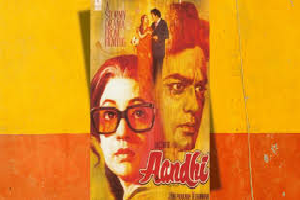9

N Sathiya Moorthy
Chennai | Wednesday | 9 April 2025
In the run-up to the Waqf Bill controversy hitting national headlines, a Hindu leader in southern Tamil Nadu was caught in a controversy and was arrested for ‘promoting enmity among communities’. He had complained that a Muslim by name Nargis Khan had been appointed trustee of a Hindu temple by the State’s Department of Hindu Religious & Charitable Endowments (HR & CE).
As it turned out, the said trustee was a practising Hindu, and the family had christened him after the doctor who had delivered him through a difficult process when his mother was pregnant. It became clear that the Hindu leader had levelled the accusation against the ruling DMK Government without caring to check the facts.
Fast-forward to the Rajya Sabha debate on the Waqf Bill. Finance Minister Nirmala Sitharaman claimed that in another temple town in Tamil Nadu, the local people were now being asked to obtain a ‘No Objection Certificate’ (NOC) from the Waqf Board for any deals on the 400-acre property that otherwise belonged to a 1,500-year-old temple. She did refer to the possibility of the district authorities wrongly entering the property in the Waqf’s name during digitisation, and asked if it was not the duty of the latter to clarify the matter.
A day earlier in the Lok Sabha, Home Minister Amit Shah made a near-similar accusation in terms of huge properties belonging to the famous Tiruchendur Murugan temple, also in Tamil Nadu. In both cases, State officials have denied such claims, dismissing them as ‘political’.
It is in this overall background, one has to read the Tamil Nadu Assembly’s resolution ahead of the parliamentary passage, appealing to the BJP Centre not to do so. DMK Chief Minister M K Stalin has since declared that the party would move the Supreme Court, against the constitutional validity of the amendment bill. Of course, Hyderabad’s Owaisi has beaten Stalin to it, by becoming the first petitioner before the Supreme Court, but that will only mean that Stalin and the DMK would follow suit and follow up on his public declaration.
The DMK’s opposition to the Bill is on known lines, as argued by the critics of the Bill in both Houses of Parliament before the BJP-NDA majority ensured smooth passage. In particular, they are opposed to the Bill’s provision to appoint non-Muslims to Waqf Boards in the country. Clearly, Tamil Nadu’s ‘Nargis Khan Example’ is upper-most in the minds of the critics. The question is if Hindus did not want a person named Nargis Khan on a temple board, how could they impose a non-Muslim (say, a Hindu, or even a Christian) on a Waqf Board.
Bonding, brotherhood
The DMK’s argument especially – and silently attested by the AIADMK rival – is that even if the Nargis Khan experience is a rarity, it is also indicative of the traditional bonding, brotherhood and bonhomie between communities in the State. In interior villages where the Muslim community is present in substantial numbers – or, even otherwise – their exchanges with the majority Hindus reflect the kind of kinship that is unavailable in North India.
There are instances when local Muslim community leaders offer short-eats and thirst-quenchers to Hindu devotees on local festivities. So much so very long ago, the Nawab of Arcot in capital Chennai was the one who allotted land for the construction of a temple pond, or ‘Theppa Kulam’ in the famous Sri Kapaleeswarar Temple in Mylapore, a traditional Brahmin / Brahminical residential locality.
Such instances are dime a dozen across the State – or, so goes the argument. The Hindutva effort, it is argued, aimed at creating communal animosity and hatred where none has existed for generations and centuries. As a reason for such bonhomie, it is pointed out how Islam had come to Tamil Nadu through trade, brought by the Arab shippers, who have been in the business for centuries before the advent of the new faith. In contrast, in the North, the spread of Islam is attributed to invasions and loot from across the Khyber first, and forced conversion under a succession of Muslim rulers of Delhi.
‘Unanimous’ resolution
Significantly, the Tamil Nadu Assembly resolution was passed ‘unanimously’ after the four-member BJP group walked out in protest. It needs to be noted that the Opposition AIADMK too had backed the resolution, that too just days after party boss and former Chief Minister Edappadi K Palaniswami (EPS) had discussed the mores of reviving the broken BJP poll alliance with Union Home Minister Amit Shah in Delhi.
If it was a clear indication about the AIADMK cadre mood, which in turn reflected the public opinion in a way, even the BJP legislators did not seem to be in a mood to oppose the resolution. By staging a walk-out, they registered their opposition to the resolution. At the same time, by staging a walk-out and not staying in the House and not voting against the resolution, they also ensured that on record, it would be deemed to have been passed ‘unanimously’.
Seemingly the BJP legislators, with their foot on the ground, too, were only reflecting the larger public mood, outside the party’s immediate support-base. Truth be told, unlike in the case of other Hindutva enterprises in the country, there is not enough traction among the BJP supporters in Tamil Nadu on the Waqf Bill, as if it did not concern them at all.
Corner them, they would declare that the MoSha dispensation in Delhi was doing the right thing. Question them, they would not have enough ammunition to defend themselves or the party or the government at the Centre. They oppose the Bill because they are already BJP supporters and Modi bhakts. There is nothing to suggest that the current move by itself has brought in new voters in Tamil Nadu to the Modi-BJP camp.
Suffice to point out that the Opposition AIADMK did not protest when Chief Minister Stalin made a suo motu statement, under Rule 110, in the State Assembly that his party, the DMK, would move the Supreme Court. It would have been different if he had said that the State Government was doing so. It only clearly goes on to prove the ‘positive public mood’, if you want to say so, or ‘total indifference’, otherwise.
Tamil experience
There is no denying the politico-electoral angle to it all. Definitely, CM Stalin and his party are making it out to be a huge issue, also because the Assembly elections this time next year, and rival parties like the AIADMK and the BJP have begun talking about reviving their failed alliance from the past. So is also why the AIADMK, despite talking alliance-revival with the BJP, is not criticising the resolution for the sake of political criticism.
According to party leaders, electoral alliance is one thing, but ideological moorings and ground realities are another thing altogether. Just because you change allies owing to electoral expediency, you do not change your basic principles, ideology and sociological beliefs, which are all born out of generations of ‘Tamil experience’.
That way, even the four BJP legislators’ muted reaction to the resolution and half-hearted support to the parliamentary legislation are rooted in their hopes of winning back their respective seats in next year’s Assembly elections. This contrasts with the position and posturing by other Tamil Nadu BJP leaders, particularly those who do not intend contesting the Assembly polls.
There is also no denying the mutual mistrust among the cadres of the AIADMK and the BJP, as their respective leaderships are heading to negotiate a poll alliance, taking off from where the Shah-EPS talks left them. The mistrust is mutual – and real.
The AIADMK cadres in particular are convinced that the party’s total rout in the Lok Sabha polls of 2019 and Assembly elections two years later, in 2021, owed to the ‘unbecoming’ alliance with the BJP, which was an ‘anathema’ to all that the late MGR and Jayalalithaa had stood for. They point out how the late Jayalalithaa, when she was Chief Minister, had nearly swept the 2014 Lok Sabha election in the State when the rest of the country voted Modi and the BJP.
They also recall how the party lost the 2021 Assembly election when in power and EPS was Chief Minister, only because ‘we were in the BJP’s company that Amma did not approve of’. However, they have no explanation why then did the AIADMK lose the 2024 Lok Sabha polls in a very big way despite having broken ties with the BJP.
Some of them claim that it owed to the voter’s distrust that the AIADMK would not back the BJP-NDA, if the latter needed their support to form the government. In context, they point out how Modi 3.0 was now dependent on the TDP and JD (U) for the government’s survival and how their votes in the two Houses of Parliament made a difference to the passage of the Waqf Bill.
Ideological forebear
Going beyond electoral politics, whatever arguments that the AIADMK second-line put out in private – and at times public – in matters of ideology, apply to the DMK even more. After all, as the ideological forebear of the breakaway AIADMK, the DMK has them all and even more – and at times in excessive doses.
For instance, the DMK’s so-called anti-Hindu, anti-god voices were getting muted and dormant for a period but the revival of Hindutva, especially ‘online Hindutva propaganda’ of the past decade, aimed at addressing the new generation, meant that they all are back as a ‘pan-Tamil’ identity issue. This has helped the party in a way, but it has also revived forgotten ideological core from which the party was slowly but surely moving away from, if only to take the ‘middle-path’ on issues.
It is not to be so, anymore. Instead, the ‘Hindutva provocation’, both as parties and governments at the Centre and in many States, has forced the likes of DMK first and the AIADMK to a lesser extent, to fall back on ideology -- and not disown or distance oneself from the same. This especially may help the DMK to consolidate its minority vote-bank, especially Muslims, on a positive note, even if they were voting the party in recent years more out of circumstances than choice – or, if it were so.
The irony of the Tamil society that the BJP and other Hindutva forces with their heart, mind and brain set in the north of the Vindhyas is this: The Tamil Hindu majority in the State is as religious and as orthodox as any other. But they do not confuse their religious identity with political preference and social realities (of the ‘Nargis Khan’ kind).
Hence, your average Hindu would go to the nearest temple on the morning of the polling day, as he has been doing on all days of the year, and yet walk down to the polling station on way back home – and vote the AIADMK, or better still the DMK, with no questions or compunction. Only that the BJP-RSS combo have not given up hopes on changing that mind-set, if not here and now, but some day, some way!.
(The writer is a Chennai-based Policy Analyst & Political Commentator. Email: sathiyam54@nsathiyamoorthy.com)
**************





















































































































































































































































































































































































































































































































































































































































































































































































































































































































































































































































































































































































































































































































































































































































































































































































































































































